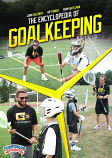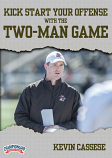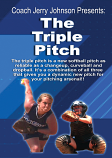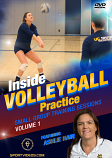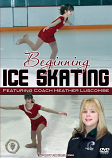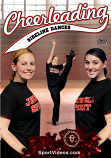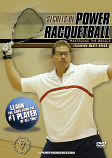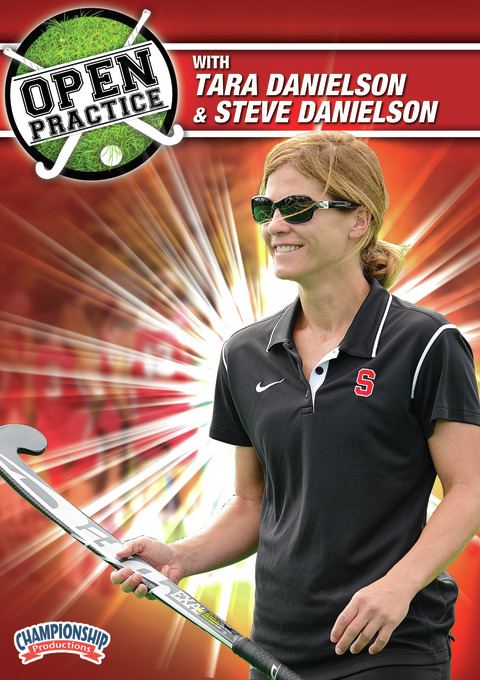
Stanford Coaches Tara and Steve Danielson show you how to develop a team that uses sharp moves and quick passes to play fast-paced, attacking hockey. Improve ball-handling confidence as well as hand and footwork with drills like:
1.passing patterns to goal, including skip passing
2.attack and defensive build-up
3.small game scenarios
4.counter attack options (3v3 possessions)
5.large game scenarios
6.This natural progression from individual to team skills helps to refine what players already know.
The video opens with a series of comprehensive, dynamic team stretching and warm-up exercises. These exercises are presented with enough detail that a coach can easily add them to their program.
Stanford works from the philosophy of "Fail Forward and Succeed." To illustrate how this philosophy is out into practice, this video includes a high-tempo, quick-paced training session . Limiting the amount of time spent on each exercise increases repetitions and encourages players to perform at their highest level. Consistently practicing at true game speed provides the correct conditions so that each player will eventually find success while practicing these "high-tempo" drills. The "high-tempo" skills carry forward throughout the practice session, forming the foundation for a fast-paced, game-speed practice.
Practice begins with passing patterns to goal, emphasizing basic skill execution for passing and shooting, including proper stance, body position, and correctly receiving and delivering the ball in a "high-tempo" format. Drills progress from stationary passing to passing to a ball receiver who is on the move, working on leading away from the passer when receiving the pass. In each case, the passer needs to perform a pre-scan before passing. Continuing the progression, the shooter now receives the ball with their stick perpendicular to the goal and their feet facing toward the goal. This is a very difficult technique but it's broken down into its simplest components, making it easy to understand and practice.
Throughout the practice session, players are given strategies for ball handling in an effort to find open space and succeed in moving the ball downfield. Reinforcing basic concepts, the Stanford coaches deliver valuable tips that can be applied to any level of play.
Coaches and athletes alike will learn to train in tight spaces and then transition to more open spaces. This teaches players to quickly add width and depth to the game and reap benefits from fast breaks. Players learn how to use open space, a change in speed and running off the ball to their advantage.
Coaches Steve and Tara Danielson share several drills that can be easily implement into any practice session. This is a must-have DVD for any coach who wants to see immediate improvement and results.
1.passing patterns to goal, including skip passing
2.attack and defensive build-up
3.small game scenarios
4.counter attack options (3v3 possessions)
5.large game scenarios
6.This natural progression from individual to team skills helps to refine what players already know.
The video opens with a series of comprehensive, dynamic team stretching and warm-up exercises. These exercises are presented with enough detail that a coach can easily add them to their program.
Stanford works from the philosophy of "Fail Forward and Succeed." To illustrate how this philosophy is out into practice, this video includes a high-tempo, quick-paced training session . Limiting the amount of time spent on each exercise increases repetitions and encourages players to perform at their highest level. Consistently practicing at true game speed provides the correct conditions so that each player will eventually find success while practicing these "high-tempo" drills. The "high-tempo" skills carry forward throughout the practice session, forming the foundation for a fast-paced, game-speed practice.
Practice begins with passing patterns to goal, emphasizing basic skill execution for passing and shooting, including proper stance, body position, and correctly receiving and delivering the ball in a "high-tempo" format. Drills progress from stationary passing to passing to a ball receiver who is on the move, working on leading away from the passer when receiving the pass. In each case, the passer needs to perform a pre-scan before passing. Continuing the progression, the shooter now receives the ball with their stick perpendicular to the goal and their feet facing toward the goal. This is a very difficult technique but it's broken down into its simplest components, making it easy to understand and practice.
Throughout the practice session, players are given strategies for ball handling in an effort to find open space and succeed in moving the ball downfield. Reinforcing basic concepts, the Stanford coaches deliver valuable tips that can be applied to any level of play.
Coaches and athletes alike will learn to train in tight spaces and then transition to more open spaces. This teaches players to quickly add width and depth to the game and reap benefits from fast breaks. Players learn how to use open space, a change in speed and running off the ball to their advantage.
Coaches Steve and Tara Danielson share several drills that can be easily implement into any practice session. This is a must-have DVD for any coach who wants to see immediate improvement and results.


